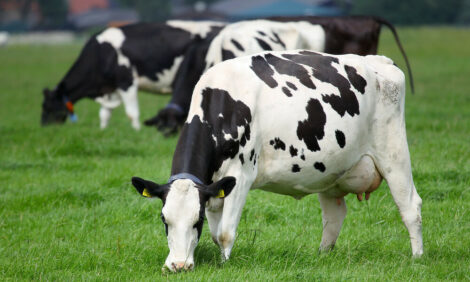



OTA Opposes Further Delay of Organic Livestock and Poultry Practices Rule
US - The US Department of Agriculture’s Agricultural Marketing Service (AMS) is delaying the effective date of the rule published on 19 January 2017, for an additional six months to 14 November 2017, to allow time for further consideration by USDA.The effective date for this rule was initially 20 March 2017, and was subsequently delayed to 19 May 2017, by a document published in the Federal Register on 9 February 2017.
The final rule amends the organic livestock and poultry production requirements by adding new provisions for livestock handling and transport for slaughter and avian living conditions; and expands and clarifies existing requirements covering livestock care and production practices and mammalian living conditions.
In response to this delay, the Organic Trade Association (OTA) issued a statement saying: "The Organic Trade Association (OTA) along with over 350 organic livestock producers representing $1.95 billion in annual sales, the federal Advisory Committee on organic, and every major US accredited organic certifier have called on the Secretary of Agriculture to allow the organic livestock rule to go into effect.
"The organic industry takes the Secretary at his word that USDA just needs a bit more time. But after more than a decade of work, now spanning three administrations, this delay will not reveal any new information. The organic industry supports this final rule. The organic consumer supports this final rule. Any additional comment period will only serve to demonstrate that the organic industry and consumer want the Organic Livestock and Poultry Practices rule to become effective, in its entirety. Under a business friendly administration, we are confident the Secretary will see the benefits for producers.
"Being certified organic is a choice, not a mandate. Organic means more than just what the animals eat. The comprehensive regulation reflects a consensus between producers, certifiers, and consumers that organic livestock, including poultry, should be provided with meaningful outdoor access and adequate space to move around, and that all organic livestock should not be subjected to unnecessary physical alterations like tail docking.
"The voluntary organic program ensures products bearing the USDA Organic seal meet rigorous standards. The viability of the organic market rests on consumer trust in the USDA Organic seal, and trust that the organic seal represents a meaningful differentiation from other agricultural practices. A federal voluntary standard that meets the changing needs of customers is imperative for the organic sector. Without the ability to deliver a product that keeps up with the evolving consumer preference, the relevance of the USDA Organic seal is at stake and it will have long-term detrimental effects on an entire industry.
"Organic is an important vibrant part of the US economy and a bright spot for our farms and our rural areas. Organic agriculture and the businesses accompanying it have been shown to lower local poverty rates and raise household incomes. Organic creates jobs and opportunities, and gives existing farmers and future farmers a viable alternative.
"We urge the Administration to support industry developed organic standards."
You can view the OTA's letter to Secretary Perdue by clicking here.
TheCattleSite News Desk


